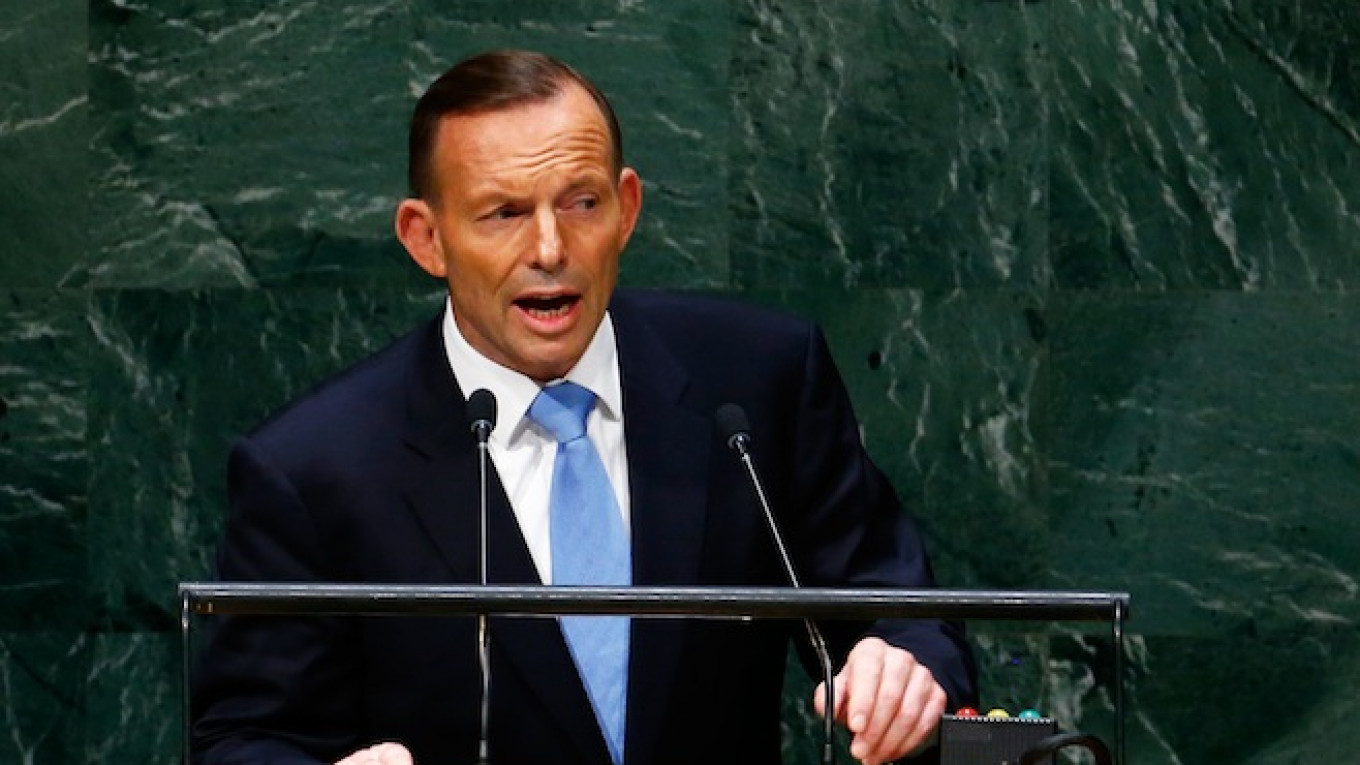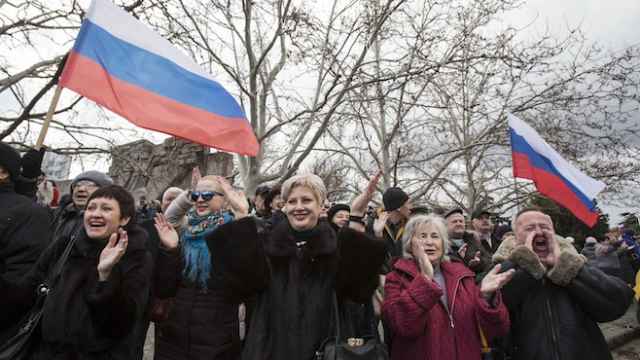Expanded Australian economic sanctions on Russia's arms, petroleum and financial sectors as well as a ban on Australian business activity in Crimea came into force on Tuesday, the Australian Ministry of Foreign Affairs said in a statement.
The harsher sanctions come in response to "Russia's ongoing threat to the sovereignty and territorial integrity of Ukraine," the statement said. They are the third round of sanctions Australia has imposed over Russia's annexation of Crimea and its ongoing support of separatist rebels in eastern Ukraine.
The sanctions, which match U.S. and EU economic sanctions imposed last year, were first announced by Australian Prime Minister Tony Abbott in September 2014 but only came into force on Tuesday.
The measures restrict the export or import of "arms and related material" to and from Russia, the export to Russia of items used for petroleum exploration and production and Russian state banks' access to the Australian capital market.
Australian investment in Crimea and Sevastopol and export of "certain items for use in the energy and minerals sector" to the territory is also prohibited.
Australia is one of a group of Western countries, which also includes the U.S., EU, Norway, Canada, Albania, Iceland, Montenegro and Switzerland, to have imposed sanctions or other restrictions on Russia amid international tensions over the conflict in eastern Ukraine, which has killed more than 6,000 people to date, according to the United Nations.
Economic sanctions have played a role in escalating capital flight from Russia and, along with steep falls in the price of oil, helped push the Russian currency down 40 percent against the U.S. dollar last year.
A Message from The Moscow Times:
Dear readers,
We are facing unprecedented challenges. Russia's Prosecutor General's Office has designated The Moscow Times as an "undesirable" organization, criminalizing our work and putting our staff at risk of prosecution. This follows our earlier unjust labeling as a "foreign agent."
These actions are direct attempts to silence independent journalism in Russia. The authorities claim our work "discredits the decisions of the Russian leadership." We see things differently: we strive to provide accurate, unbiased reporting on Russia.
We, the journalists of The Moscow Times, refuse to be silenced. But to continue our work, we need your help.
Your support, no matter how small, makes a world of difference. If you can, please support us monthly starting from just $2. It's quick to set up, and every contribution makes a significant impact.
By supporting The Moscow Times, you're defending open, independent journalism in the face of repression. Thank you for standing with us.
Remind me later.






